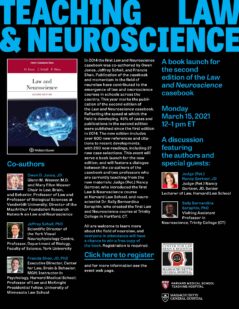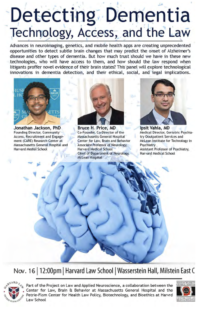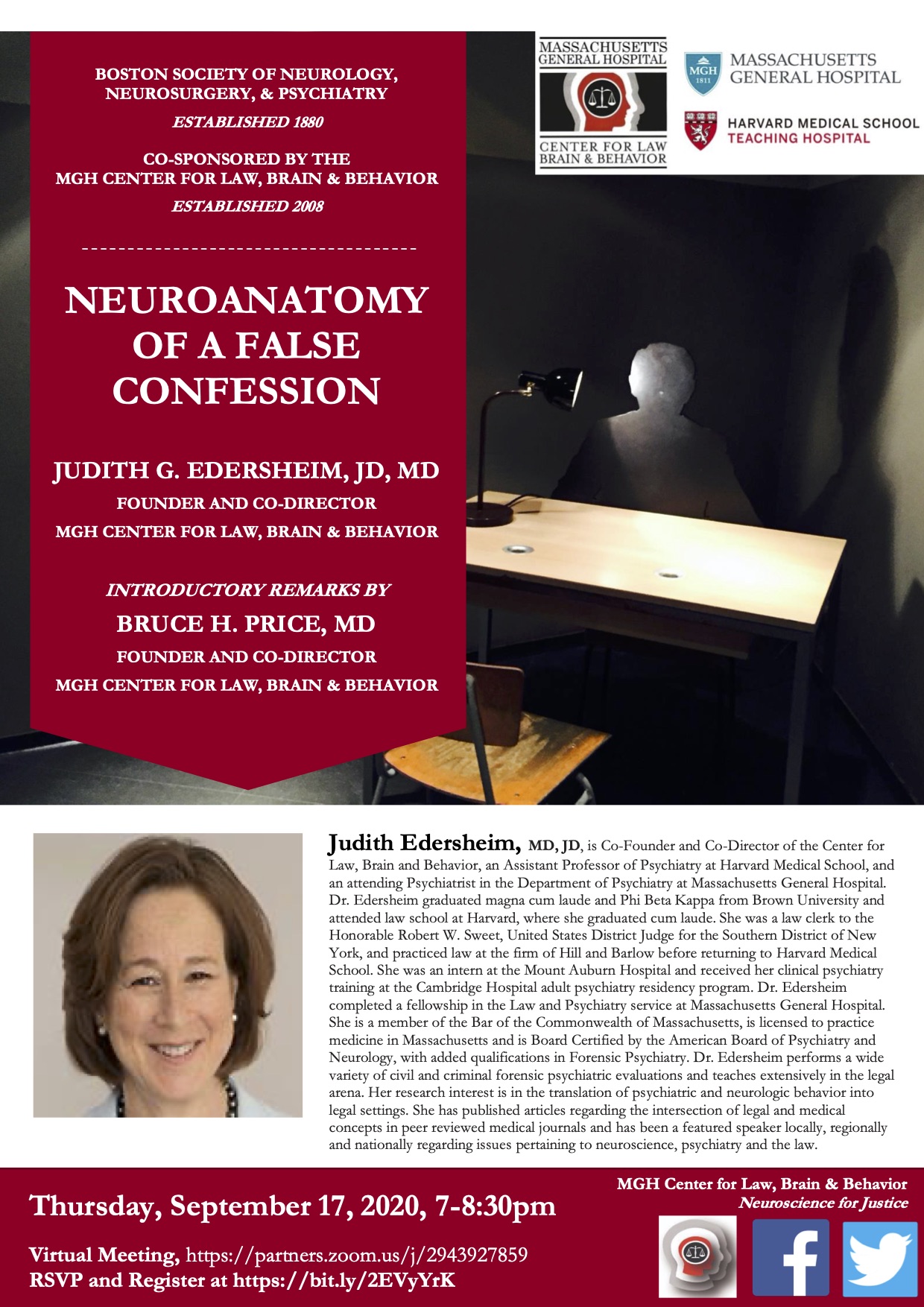Policing and the Brain: How Neuroscience Can Contribute to Police Reform
March 31, 2021, 12:00 PM
The language of medical science has been used by law enforcement to justify police brutality. For example, a police officer present at the killing of George Floyd suggested that Floyd might have been experiencing “excited delirium,” a term that, while not recognized by major medical associations, is sometimes used by law enforcement to describe aggression resulting from illicit substance use.
Though there is potential for problematic and biased use of medical science by law enforcement, could neuroscience hold promise for shaping evidence-based reforms?
This panel on March 31st explored this question through a discussion of recent neuroscience research into emotions and the brain, and the significance of this research for police reform efforts.
Panelists
- Introduction: Carmel Shachar, Executive Director, The Petrie-Flom Center for Health Law Policy, Biotechnology, and Bioethics at Harvard Law School
- Dr. Lisa Feldman Barrett, PhD, University Distinguished Professor, Northeastern University and Chief Scientific Officer, Center for Law, Brain & Behavior (CLBB)
- Judge (Ret.) Andre M. Davis, JD, Advisory Board Member, CLBB; Circuit Judge (ret.), the United States Court of Appeals for the Fourth Circuit; and City Solicitor (ret.), Baltimore City Department of Law
- Dr. Altaf Saadi, MD, MSc, Neurologist, Massachusetts General Hospital and Instructor of Neurology, Harvard Medical School
- Moderator: Elyssa Spitzer, JD, Senior Fellow in Law and Applied Neuroscience, CLBB and the Petrie-Flom Center
Learn more about the issues.
- Mallory Sofastaii, “Baltimore through the eyes of the outgoing city solicitor,” WMAR Baltimore (March 6, 2020).
- Joshua Budhu, Méabh O’Hare, and Altaf Saadi, “How ‘excited delirium’ is misused to justify police brutality,” Brookings How We Rise blog(August 10, 2020).
- Arun Rath and MAtt Baskin, interview Dr. Altaf Saadi, “No Medical Justification For Police Chokeholds, Neurologists Say,” GBH News (December 28, 2020).
Watch the fully captioned event video.
This event is part of the Project on Law and Applied Neuroscience, a collaboration between the Center for Law, Brain & Behavior at Massachusetts General Hospital and the Petrie-Flom Center for Health Law Policy, Biotechnology, and Bioethics at Harvard Law School.






